Choose high-quality products, and get published in Nature
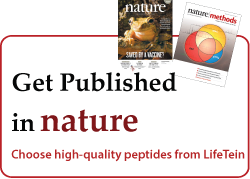
Nature is a high-impact scientific journal that is widely read in the scientific community. If you want to learn how to orient your research toward subject areas that give you a greater chance of being published in Nature, LifeTein's advice would be: use quality products and research something you're excited about.
When defining a high-quality protein product, the primary consideration for most researcher is whether the protein will work when and how needed. This “product reliability” is a measure of the probability that a peptide or protein will hold its anticipated structure and perform its required function for a specified period of time.
What is reliability synthesis?
Reliability synthesis is the method we use that is dedicated to the reliability of a protein product: more specifically, to predicting, analyzing, and preventing or mitigating synthesis failures. Product reliability is critical for meeting scientist's demands for quality protein products at competitive prices.
- Use the best raw materials: When it comes to product quality, we start from the beginning. Throughout our processes, we take great care to ensure that our synthesis begins with the best amino acids, resins, raw materials, and equipment.
- Reduce the rate of synthesis failures: The analysis of reliable peptide synthesis begins early in the synthesis process, before synthesis even begins. A technique known as Peptide Property Prediction or Calculation is used to analyze and predict the failure of synthesis over time and under various peptide synthesis conditions. The best synthesis scheme is then designed or suggested to prevent synthesis failures.
- Increase synthesis efficiency: LifeTein's PeptideSyn technology is a very practical platform for the high efficiency synthesis of long peptides. PeptideSyn technology allows the flexibility to select affordable, highly efficient coupling reagents for rapid SPPS.
- Integrated reliable synthesis to close the quality loop: Although the synthesis of each peptide is different, the mechanism behind the synthesis is similar. However the optimal synthesis conditions must be analyzed and optimized to guarantee product quantity and purity. The failure rates calculated during reliability prediction and other system design methods can be used to purify peptides using the optimal solvent and increase protein purity.
- Sealed-in stability: Creating a vacuum around synthetic peptides leaves no room for the problems associated with moisture-based oxidation. Sealed-in-Peptides helps prevent oxidation by sealing air out, and stability in.
What are Nature editors looking for?
- Novelty: Important questions and novel concepts
- Technically convincing studies
- Outstanding scientific importance with broad interest
- Studies that provide novel research directions
- Studies that provide fundamental insights into virous fields
Before preparing your experiments, you should ensure that you choose quality products and reliable services. LifeTein is the leading protein expert. Founded in 2008, LifeTein is the fastest provider of synthetic proteins in the US, with a global customer base that encompasses academia, the government, and pharmaceutical, chemical, agricultural, and biotechnology industries. LifeTein is the vendor that can synthesize by far the longest peptides, providing synthetic proteins of up to 169 amino acids to scientists.
Success Stories: References using synthetic peptides and antibodies from LifeTein. Click here for more references!
Highlights:
 |
Cell, Volume 159, Issue 4, 6 November 2014, Pages 844–856, DOI: 10.1016/j.cell.2014.10.032, A Noncanonical Frizzled2 Pathway Regulates Epithelial-Mesenchymal Transition and Metastasis |
 |
Nature Communications, Accepted 02 Aug 2014, doi:10.1038/ncomms5904, An endocytosis pathway initiated through neuropilin-1 and regulated by nutrient availability |
 |
Nature, Accepted 06 May 2014, doi:10.1038/nature13452, Carbonic anhydrases, EPF2 and a novel protease mediate CO2 control of stomatal development |
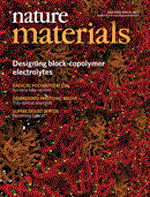 |
Nature Materials, Accepted 14 April 2014, doi:10.1038/nmat3982, Etchable plasmonic nanoparticle probes to image and quantify cellular internalization |
 |
Nature Communications, 5, Article number: 3571 doi:10.1038/ncomms4571, An alternate binding site for PPARγ ligands |
 |
Nature, 497, 383–387, 2013, doi:10.1038/nature12080, EGFR modulates microRNA maturation in response to hypoxia through phosphorylation of AGO2
|
 |
Nature Communications, doi:10.1038/ncomms3261, Aug, 2013, Disrupting malaria parasite AMA1–RON2 interaction with a small molecule prevents erythrocyte invasion |
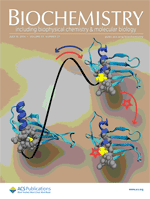 |
Biochemistry, 2013, DOI: 10.1021/bi401034q, Mechanistic Basis for the Potent Anti-angiogenic Activity of Semaphorin 3F |
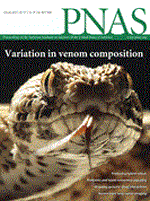 |
PNAS, 2012, doi:10.1073/pnas.1119073109, Structures of KIX domain of CBP in complex with two FOXO3a transactivation domains reveal promiscuity and plasticity in coactivator recruitment |
 |
Cell, 2012, Volume 151, Issue 6, 1243-1255, Piwi-Interacting RNAs Protect DNA against Loss during Oxytricha Genome Rearrangement |
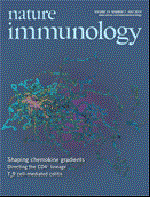 |
Nature Immunology, 2011, doi:10.1038/ni.2107, The carboxypeptidase ACE shapes the MHC class I peptide repertoire |
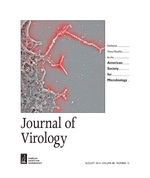 |
Journal of Virology, 2013, doi: 10.1128/JVI.00814-13, Cross-inhibition of ChikunGunya virus fusion and infection by alphavirus E1 domain III proteins |